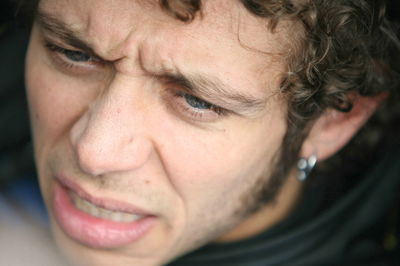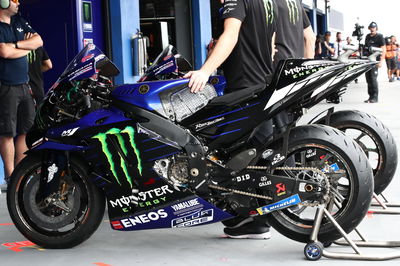Valentino Rossi’s old boss: “Yamaha don’t understand; different to 20 years ago”

Iconic Italian brand Ducati crowned Francesco Bagnaia as their first MotoGP champion since 2007 last season, and look like the team to beat in 2023.
Fabio Quartararo’s title reign was ended in part due to his Yamaha bike’s performance, while Marc Marquez has complained about his 2023 Repsol Honda prototype.
"The problem of the Japanese manufacturers is that they have not understood that this MotoGP has nothing to do with that of 20 years ago," ex-Yamaha and Suzuki boss Brivio told Slick Magazine.
"As long as the grands prix were a business between them, between Japanese companies, the development of the bikes took place according to the rules of Japanese companies: a long schedule, the work diluted over the months had to lead to the end of the championship without jolts.
"That's why news always comes slowly. Did you need a frame? It took three months. Did we need a different engine? We were talking about it for the following year.
“European companies are more aggressive in their approach to racing, so they have established a new way of racing. And Yamaha and Honda will also have to adapt.
“It is the approach that is different: facing the races doing everything possible to have increasingly performing bikes, leaving no stone unturned and continuing to try to improve, constantly thinking about new solutions.

“It is a bit trivial to stop at the fact that Ducati has an advantage in aerodynamics or in the set-up variation system: this is only the result of a difference in approach and therefore in method.
“Ducati, but also Aprilia and KTM, have begun to make increasingly sophisticated data analyses, while the Japanese companies on the track still work as they did 15 years ago. And if you do so, the information that comes home from the track is not sufficiently clear and exhaustive.
“If you do not have engineers of the same level as those in the factory in Japan, the level of information that arrives does not exhaust their desire and need to understand where the problem or the weak point lies. The work on the track must go hand in hand with the work in the factory.
“The European manufacturers have a direct and constant connection between track and factory. [With Japanese manufacturers] the team that goes on track does not provide enough precise data and more details to those at home. Yamaha and Honda are paying this [price] now.
"The team on the track must become an integral part of the MotoGP programme, so a great synergy must be created between those who are at home and those who are on the track: they must no longer be two distinct groups.”
Brivio delivered world championships for Japanese-based manufacturers - he was the team manager who brought Rossi to Yamaha in 2004 for his legendary stint.
And he was in charge at Suzuki when Joan Mir won the championship in 2020.

![Toprak Razgatlioglu, ROKiT BMW Motorrad, BMW M 1000 RR [Gold & Goose]](https://cdn.crash.net/2024-09/GnG_1165424_HiRes.jpg?height=90)






![Johann Zarco, LCR, Honda RC213V, 2024 San Marino MotoGP, Misano, action [Gold & Goose]](https://cdn.crash.net/2024-09/GnG_1166323_HiRes.jpg?height=90)

![Jack Miller, KTM Factory Racing, KTM RC16, San Marino MotoGP, Misano, action [Gold & Goose]](https://cdn.crash.net/2024-09/GnG_1167624_HiRes.jpg?height=90)